The Writing Habits of Successful Authors
January 29, 2019
Note From Rochelle
Dear Writers,
Happy New Year!
I have several opportunities coming up for you to get support with your writing.
The next session of the Writing Goddesses support group starts in February. I have room for 2 or 3 more people. If you’re interested in joining us, visit the Writing Goddesses page on my website to learn how to apply or email me for more information.
I’ve also got several workshops coming up, including one to help you get more writing done. In that workshop, I’ll be sharing every single one of my secrets for being a productive writer. Whether you’re a professional writer struggling to meet deadlines, a coach who wants to blog more, or an entrepreneur who wants to carve out time to write your book, this will help you. Visit the workshop page to sign up.
Today’s tip gathers the wisdom of several working writers to help you overcome blocks and write more!
Enjoy!
Rochelle
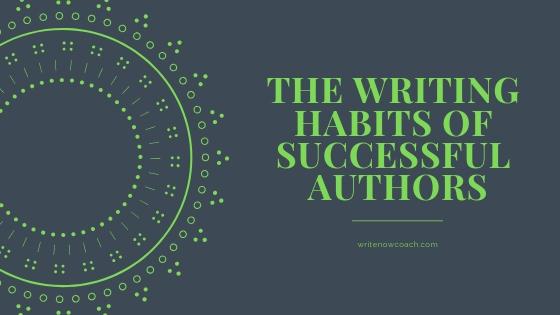
The Writing Habits of Successful Authors
Early in January, author Lori Rader-Day posted a request on Facebook, asking for input from fellow writers for her talk, Pomodoros and Chocolate: Motivation and Productivity for the Writer. The writers who answered her provided some of the best advice I’ve heard. So I messaged many of them, asking for permission to share their wisdom with you. This post is longer than most—but I don’t think you’ll mind. These brilliant women offer advice and practices that will revolutionize your writing!
Jeanette Hurt
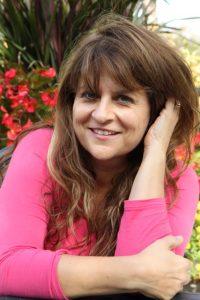 As a former newspaper reporter, I know the importance of meeting deadlines, but I don’t have an amazing way to keep track of deadlines. But I do have my journal. I use my journal FOR EVERYTHING. Besides the occasional morning pages or contemplations or prayers or getting stuff out of my head, I keep lists in my journal. My lists are both personal and professional, and I write daily to-do lists, weekly to-do lists and monthly to-do lists. I also write rest-of-week to-do lists. On these lists, I often write the exact deadlines down, and I refer to my journal lists several times a day. It’s very low-tech (my fancy phone has my calendar, but I find if I just put deadlines there, I miss them!), but it is a visual reminder of what I need to do, and it keeps me sane.
As a former newspaper reporter, I know the importance of meeting deadlines, but I don’t have an amazing way to keep track of deadlines. But I do have my journal. I use my journal FOR EVERYTHING. Besides the occasional morning pages or contemplations or prayers or getting stuff out of my head, I keep lists in my journal. My lists are both personal and professional, and I write daily to-do lists, weekly to-do lists and monthly to-do lists. I also write rest-of-week to-do lists. On these lists, I often write the exact deadlines down, and I refer to my journal lists several times a day. It’s very low-tech (my fancy phone has my calendar, but I find if I just put deadlines there, I miss them!), but it is a visual reminder of what I need to do, and it keeps me sane.
Jennifer Kincheloe
 I have a full time job as a criminal justice researcher, so by day, I’m up to my neck in inmate data, coding statistical models. Plus, I’ve got two teenagers at home. It’s busy and it’s exhausting. I write on my half hour lunch break, holidays, and weekends, so I have to focus. I don’t always feel like writing. Sometimes I just have to put on my big girl panties. I tell myself “you’re a professional writer, now act like one.” Then, I act like one.
I have a full time job as a criminal justice researcher, so by day, I’m up to my neck in inmate data, coding statistical models. Plus, I’ve got two teenagers at home. It’s busy and it’s exhausting. I write on my half hour lunch break, holidays, and weekends, so I have to focus. I don’t always feel like writing. Sometimes I just have to put on my big girl panties. I tell myself “you’re a professional writer, now act like one.” Then, I act like one.
I guard my sleep, exercise, and social time. I rarely weed, organize my linen cabinet, or clean the fridge.
Kekla Magoon
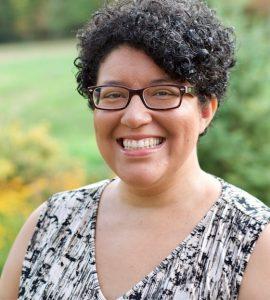 If the struggle is discipline, I have an app called Forest on my phone, which prevents me from distracting myself (with that particular device, at least). You pick a length of time that you want to focus and the app grows you a little tree. If you leave the app, the tree dies. You get a fresh little field every day and the app tracks your productivity over time. (https://www.forestapp.cc/)
If the struggle is discipline, I have an app called Forest on my phone, which prevents me from distracting myself (with that particular device, at least). You pick a length of time that you want to focus and the app grows you a little tree. If you leave the app, the tree dies. You get a fresh little field every day and the app tracks your productivity over time. (https://www.forestapp.cc/)
If the struggle is getting words down, I use various silly strategies to get over the angst of staring at the blank page and/or not knowing what comes next:
+Type nonsense for a while to warm up my fingers
+Retype the previous sentence or paragraph to remind myself of the flow of the piece
+Deliberately write a really bad sentence, laughably, painfully bad, so as to remind myself not to be so precious about every single word
+Type “and then” over and over until I have something to say
I also let myself write whatever part of the book I can get most excited about at the moment, even if it’s not what’s “next.” Then I go back and fill in gaps later.
Lori Rader-Day
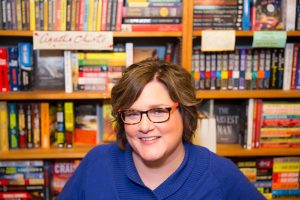 I have not always been a disciplined writer, the kind with a plan who writes every day. In the early days I used to binge-write but that’s not a great way to write a novel. Or to live. When I began taking writing seriously, I had to figure out how to write more—more consistently and over time.
I have not always been a disciplined writer, the kind with a plan who writes every day. In the early days I used to binge-write but that’s not a great way to write a novel. Or to live. When I began taking writing seriously, I had to figure out how to write more—more consistently and over time.
So I wrote over my lunch hours. That’s the hour I had. I didn’t name a word count goal. In intense revision times, I might get up early and do an hour before work, too.
Now that I’m a full-time writer, I’m actually less disciplined. I write a little, more days than not. When I’m drafting, I try for 1,000 words a day. I try. On a new project, I lowered the goal to 500 so that I could high-five myself more.
Tactics: I keep track of my word count in a separate Word document. I belong to a couple of accountability groups on Facebook. I have the Self Control app on my laptop to block out the internet. I leave my phone in another room or turn it on Airplane mode. I am in a serious relationship with my noise-canceling headphones and the playlist I make for every novel. I get work done on airplanes, in cafes, at home. Less when I’m traveling.
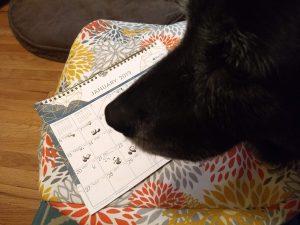
Calendar with stickers, presided over by Ursa
I have tried other methods: none of them are more effective for me than writing a story I want to know the end of and putting my butt in the chair. I have tried militant structures and strict rules, spreadsheets and Pomodoro apps. I’m currently trying a paper calendar method on which I place panda bear stickers if I make my goal. (I really like panda bear stickers.) I wish I wrote faster sometimes, but then I know my writing is best when I let it have some time, not just in full draft form before revising, but as I unravel that first draft, letting new ideas occur to me. It’s not a bad way to write, or to live.
Hank Phillippi Ryan
 The key to my method is to allow myself to succeed every day. And that becomes a powerful incentive.
The key to my method is to allow myself to succeed every day. And that becomes a powerful incentive.
First, I make a chart/grid showing the days of the week (plus one extra space) across the top and the dates down the side. So there’s a box for every day and a line for every week. It’s primitive and scraggly—simply hand drawn in pencil on a legal pad.
I know about how many words my book will be—about 100,000, so I calculate how many days there are until a month before the deadline. Then I divide to see how many words a day I would have to write to get finished with a month left to edit. It usually turns out to be about 540 words. Then I realize: wow, that’s perfectly doable! Then I put the week’s necessary total word count in the extra space at the end of each line. When I see the results, I think: Okay, super-doable!
Then, every day I fill in each box with the number of words I wrote. The great thing is that it shows me my progress, every day, so every day I succeed! YAY! I tell myself–(and anyone else who will listen)–I did my words! And it feels like it’s a task I can accomplish. So every day, I get to be happy and proud of myself.
Because a big task is now manageable. And if I miss a day, that’s fine, because I know exactly how far behind I am, and that’s manageable, too.
I also set a timer for 34 minutes (no idea why I picked that) and don’t get up or stop writing for ANY reason for that time. Then I do it again. And if I have to do something after the 34, I allow myself 10 minutes.
Also I plan that writing time so I don’t beat myself up saying what I SHOULD be doing. Like: “Okay, fine, have fun having coffee and reading the paper! But at 9, you’ll start writing and do your 34s until noon.” As a result, I get to relax and enjoy it instead of feeling guilty. And in the end, a daunting task becomes a happy, successful, fulfilling experience.
About the Authors
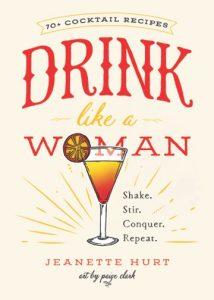 Jeanette Hurt is the award-winning author of ten books, including the critically acclaimed Drink Like a Woman and The Passive Writer. She is currently working on books number eleven (The Joy of Hard Cider for Skyhorse Publishing) and number twelve (The Wisconsin Cocktail Book for the University of Wisconsin Press). She covers the indulgence of all things distilled, brewed and fermented for Forbes.com. Her website is www.jeanettehurt.com, and follow her on Twitter (@ByJeanetteHurt).
Jeanette Hurt is the award-winning author of ten books, including the critically acclaimed Drink Like a Woman and The Passive Writer. She is currently working on books number eleven (The Joy of Hard Cider for Skyhorse Publishing) and number twelve (The Wisconsin Cocktail Book for the University of Wisconsin Press). She covers the indulgence of all things distilled, brewed and fermented for Forbes.com. Her website is www.jeanettehurt.com, and follow her on Twitter (@ByJeanetteHurt).
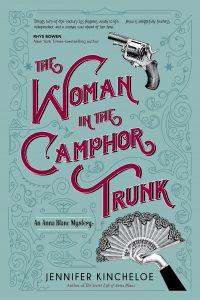 Jennifer Kincheloe is a research scientist and writer of historical mysteries. Her novels take place in 1900s Los Angeles among the police matrons of the LAPD and combine mystery, history, humor, and romance. The Woman In The Camphor Trunk was released in November, 2017 and was nominated for a prestigious Lefty Award. Her debut novel, The Secret Life Of Anna Blanc was the WINNER of the Mystery & Mayhem Award for Historical Mystery and the Colorado Gold for Best Mystery. Visit her online at Twitter (@JenKincheloe), Facebook, Pinterest, or at her website: www.jenniferkincheloe.com
Jennifer Kincheloe is a research scientist and writer of historical mysteries. Her novels take place in 1900s Los Angeles among the police matrons of the LAPD and combine mystery, history, humor, and romance. The Woman In The Camphor Trunk was released in November, 2017 and was nominated for a prestigious Lefty Award. Her debut novel, The Secret Life Of Anna Blanc was the WINNER of the Mystery & Mayhem Award for Historical Mystery and the Colorado Gold for Best Mystery. Visit her online at Twitter (@JenKincheloe), Facebook, Pinterest, or at her website: www.jenniferkincheloe.com
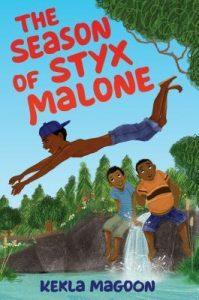 Kekla Magoon is the author of nine novels, including The Season of Styx Malone, The Rock and the River, How It Went Down, X: A Novel (with Ilyasah Shabazz), and the Robyn Hoodlum Adventure series. She has received an NAACP Image Award, the John Steptoe New Talent Award, two Coretta Scott King Honors, The Walter Award Honor, the In the Margins Award, and been long listed for the National Book Award. She also writes non-fiction on historical topics. Kekla conducts school and library visits nationwide and serves on the Writers’ Council for the National Writing Project. Kekla holds a B.A. from Northwestern University and an M.F.A. in Writing from Vermont College of Fine Arts, where she now serves on faculty. Visit her online at keklamagoon.com.
Kekla Magoon is the author of nine novels, including The Season of Styx Malone, The Rock and the River, How It Went Down, X: A Novel (with Ilyasah Shabazz), and the Robyn Hoodlum Adventure series. She has received an NAACP Image Award, the John Steptoe New Talent Award, two Coretta Scott King Honors, The Walter Award Honor, the In the Margins Award, and been long listed for the National Book Award. She also writes non-fiction on historical topics. Kekla conducts school and library visits nationwide and serves on the Writers’ Council for the National Writing Project. Kekla holds a B.A. from Northwestern University and an M.F.A. in Writing from Vermont College of Fine Arts, where she now serves on faculty. Visit her online at keklamagoon.com.
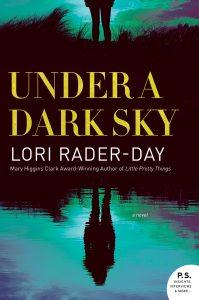 Lori Rader-Day is the Edgar Award-nominated author of Under a Dark Sky. Her debut mystery, The Black Hour, won the 2015 Anthony Award for Best First Novel and was a finalist for the 2015 Mary Higgins Clark Award. Her second novel, Little Pretty Things, won the 2016 Mary Higgins Clark Award and was a nominee for the Anthony Award for Best Paperback Original. Her third novel, The Day I Died, won the 2018 Anthony Award for Best Paperback Original and was a nominee for the Mary Higgins Clark Award, the Thriller Award, and the Barry Award. She lives in Chicago, where she co-chairs the mystery conference Murder and Mayhem in Chicago. She is the national vice president of Sisters in Crime. Visit her online at: loriraderday.com
Lori Rader-Day is the Edgar Award-nominated author of Under a Dark Sky. Her debut mystery, The Black Hour, won the 2015 Anthony Award for Best First Novel and was a finalist for the 2015 Mary Higgins Clark Award. Her second novel, Little Pretty Things, won the 2016 Mary Higgins Clark Award and was a nominee for the Anthony Award for Best Paperback Original. Her third novel, The Day I Died, won the 2018 Anthony Award for Best Paperback Original and was a nominee for the Mary Higgins Clark Award, the Thriller Award, and the Barry Award. She lives in Chicago, where she co-chairs the mystery conference Murder and Mayhem in Chicago. She is the national vice president of Sisters in Crime. Visit her online at: loriraderday.com
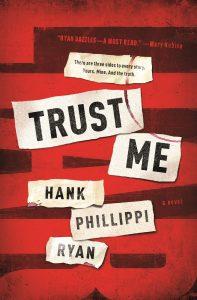
Hank Phillippi Ryan is the on-air investigative reporter for Boston’s WHDH-TV. She’s won 34 EMMYs and dozens more journalism honors. The nationally bestselling author of 10 mysteries, Ryan’s also an award-winner in her second profession—with five Agathas, three Anthonys, two Macavitys, the Daphne, and for The Other Woman, the coveted Mary Higgins Clark Award. Critics call her “a master of suspense” and “a superb and gifted storyteller” and she is the only author to have won the Agatha in four different categories. Hank’s newest book is the acclaimed standalone psychological suspense thriller Trust Me. Hank is a founder of MWA University and past president of National Sisters in Crime. Visit Hank online at Twitter, Instagram, Facebook and at her website: HankPhillippiRyan.com








